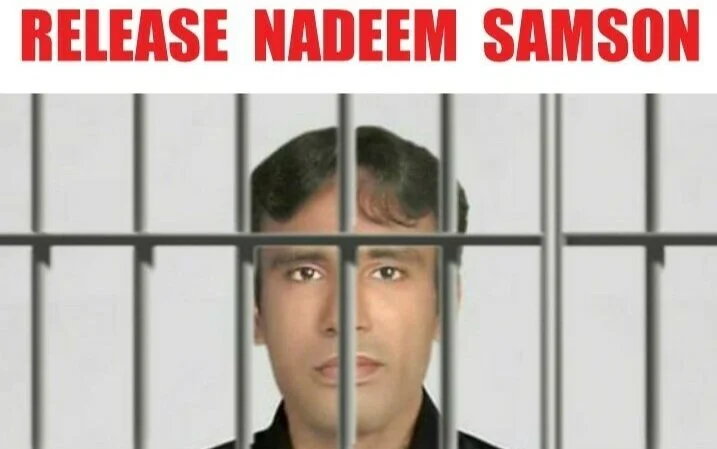US congressman supports 'Long Walk' organized by Sindhi minorities over enforced disappearances in Pakistan
ANI
US congressman, Brad Sherman on Sunday supported "Long Walk' or "Long March" from New York City to Washington DC by Sindhi Foundation, covering a distance of more than 350 miles on foot to draw attention to issues like enforced disappearances, the plight of Sindhi women in Pakistan and climate change.
"I was pleased to meet with leaders of the Sindh community. We discussed issues such as enforced disappearances in Sindh Pakistan. We also discussed the need to reach out to Sindhis in their own language and my efforts to establish a Sindhi language service at the @VOANews," tweeted Brad Sherman.
"The Sindhi Foundation Long Walk for Freedom, April 7 - 29, from the UN in NYC to DC, will draw attention to issues like enforced disappearances and climate change," informed Sherman through his tweet.
Members of the Sindhi community, a minority from Pakistan will stage a protest under the US-based Sindhi Foundation to raise awareness for human rights violations and climate change.
Titled 'Long Walk for Freedom, Nature, and Love', is a demonstration that will cut through five US states: Maryland, Delaware, Pennsylvania, New Jersey, and New York.. . . Read More
About
When the British were forced to leave India, the All India Muslim League under Mohammad Jinah refused to live together in a state with its Hindu neighbors and insisted that two nations be formed along religious lines": the Republic of India with a Hindu majority; and the Dominion of Pakistan with a Muslim majority. India was and has remained a secular state whose religious minorities continue to grow and prosper; Pakistan became an Islamic Republic, and its minorities have been savaged almost to the point of eradication. Moreover, several Muslim-majority nations were forcibly incorporated into Pakistan, and their continued resistance shows that religion is not the single identity that unites and divides peoples. Pashtuns, Sindhi, and Baloch have been subjected to massive human rights atrocities by Pakistan—which is controlled, not by a democratic government, but by the military, ISI intelligence, and their radical allies. They continue to fight to destroy these peoples and their way of life, killing millions, destroying their homes, outlawing the teaching of their languages, and much more. By insisting on multiple elements to their identity, these peoples fly in the face of radical Islamists who demand that Islam alone be their identity.
What Is Our Challenge
Due to Pakistan’s nuclear status and its geopolitical importance, as well as left over Cold War alliances, the terrible atrocities against these peoples have been allowed to continue with the world refusing to act. Our challenge is to change that. I focus on Pakistan’s critical closeness with China (to the extent of ceding autonomy in places like Gwadar Port) and the big power ramification, as well as the atrocities, and bring these matters to the attention of the United States government with the aim of world support for these beleaguered peoples.

